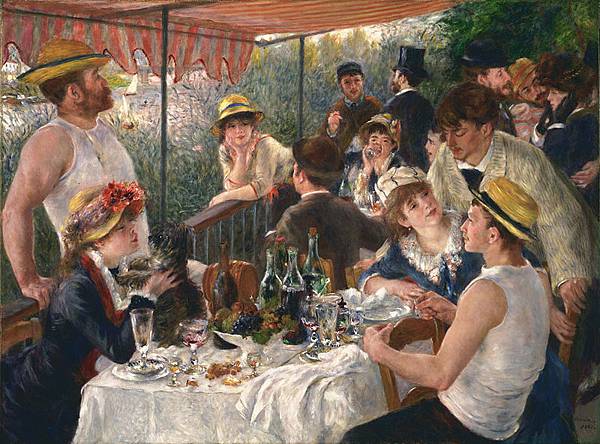Once upon a time, there was an old, retired hunter living in his hermitage.
One day, a tiger came for him. "Our forest is occupied," the tiger said, "please help us. All we want is a place that everyone could live equally."
"Why me?" The old hunter hesitated.
"All other hunters were defeated. You are our only hope." The tiger begged.
"What should I do?" The hunter asked.
"Just kill the cunning boss. Me and all other animals will fight our own battle and take our land back." The tiger answered rapidly. "All we need is a little help from your proficient skill." He added.
"Well then. I’ll give it a try." The hunter said.
"Your help is much, much appreciated, sir!" The tiger cheered. He took out a leather pouch, "I was not allowed to present this until you said yes. This is a magic pouch. When you fight the boss, reach your hand into it, and you can pull out whatever weapon you need. But it could only be used for three times." The tiger put the pouch on the table, took a bow, and left.
The hunter got off early next morning. He followed the routes the tiger told him and arrived the edge of the forest. Surprisingly, he found that either his journey or this destination was quiet and peaceful. He thought it would be full of beasts and tests, but instead he felt him wandering in a park. But still he proceeded, finally reached the center of the forest. It was a round lawn, and in the middle of it sitting the boss: a white stray rabbit.
He couldn’t believe what he saw, but in front of him this bunny who settled herself on a big flat rock was giving orders to all the wild rabbits: some to make her food, some to massage her, and some to entertain her. He glanced through the rest of the forest, and saw there were tigers, foxes, deers and all other animals, hiding and fearing in the distance.
He stepped into the lawn, walking straight to the boss rabbit. "I don’t know who you are, I don’t know why you are here, and I don’t know how you end up acting like this. But I come here by a request and I must keep my promise." He explained to her. "I am going to defeat you."
"Human." The boss rabbit shrugged. "I know you people well. Too well." She said. "Let’s see if you can beat my fellows first." She nodded to the wild rabbits, they quickly formed together and casted a net, trying to catch the hunter. The hunter took out the pouch, reached his hand into it and pulled out a knife. But instead of sweeping it toward the wild rabbits, he cut off the net and ducked away. The rabbits didn’t stop, they ran forward and pounced on the hunter. He reached into the pouch again, pulling out a gun. But instead of bullets, he fired a bigger net and caught all the rabbits.
The hunter dragged himself toward the boss rabbit. "Now it’s only you and me." He gasped.
"Weird. You are the first one who doesn’t try to kill us." The rabbit wondered.
"I can see they are innocent," The hunter said, "and so are you."
She raised her head and looked at him. "Well, my former owners didn’t think so." She lowered her head. "I was once a gift. Then a burden. Then a trouble. Then a garbage…Luckily I learned how to survive. And how to conquer…All by myself." She raised up her head yet again, this time her eyes were sharp. "Kill me, or you’ll never win this battle!"
The rabbit jumped off the rock and started hopping around. The old and tired hunter tried to catch her but he couldn’t even keep up with her steps.
"If you just want to catch me, you’ll never defeat me!" The rabbit paused on another rock, waiting until the hunter got closer and ran off again. She circled the hunter and giggled, appearing to enjoy this chasing game.
The hunter suddenly stopped dashing. He bent forward, picked up a large rock and threw it to the rabbit. The rock didn’t hit her but fell on the ground beside her. The rabbit’s smirk vanished. "Now you’re for real!" She uttered. The hunter kept throwing big rocks, but the rabbit easily dodged through them. "Get a better weapon won’t you? Use that pouch! Aren’t you supposed to be good at killing, hunter?" She yelled, bouncing left and right, up and down. The hunter ignored her advice. Soon there were more and more rocks surrounding the rabbit. However, little by little her feet slowed down, finally she was trapped by the circled rocks, too tired to escape.
The hunter walked toward her, and took out the pouch.
"I’m not only good at killing, but also good at making traps," the hunter said. He reached into the pouch and took out a delicate basket paved in a soft fleece blanket, with carrots in it. "A trap to set you free." He bent down, showing her the comfortable nest. "Come home with me, then you will never be alone. I will never be alone."
The rabbit was stunned. She stared at the hunter for a long, long time. Finally her eyes softened.
"I don’t like carrots." She murmured.
"Then what do you like?" He asked.
"Cabbage." She answered.
"Lesson learned. Don’t worry, I’ll prepare the freshest juicy cabbage when we come home. I’m also good at gardening." He said.
"…Not too watery." She demanded.
"Sure." He replied.
This stray rabbit tilted her head, pondering for a while, and hopped into the basket. When they walked away, those distant animals first peeked at them, then stepped out, and finally celebrated their freedom with the wild rabbits.
They all lived happily ever after.


